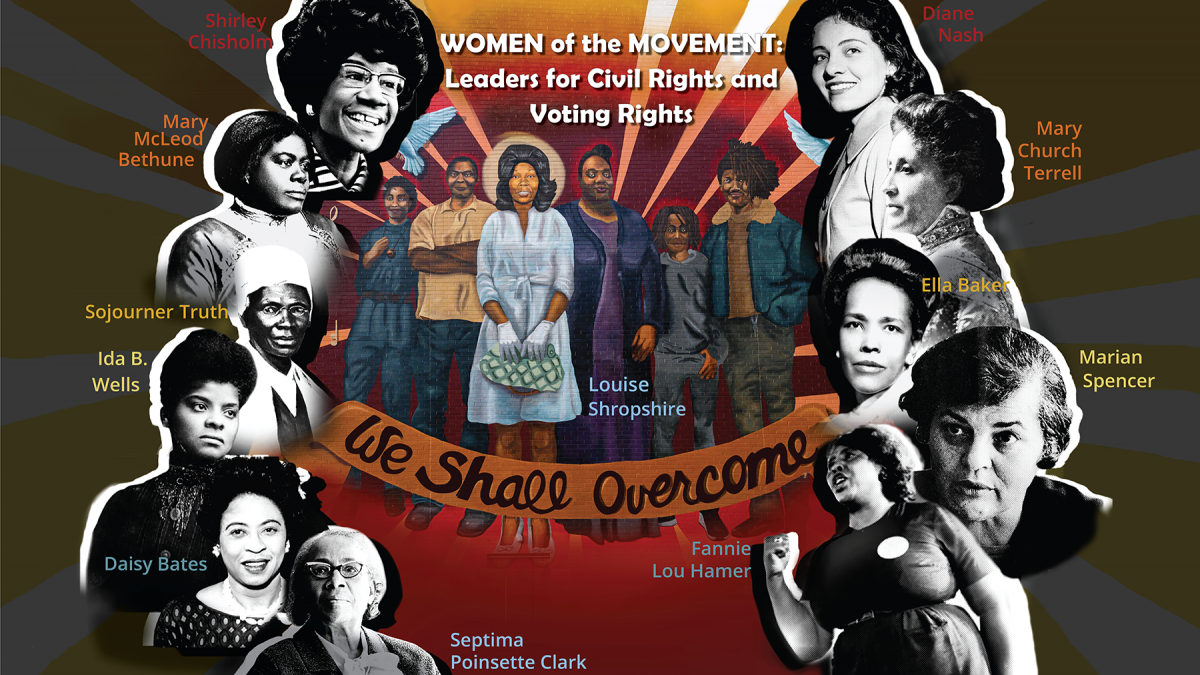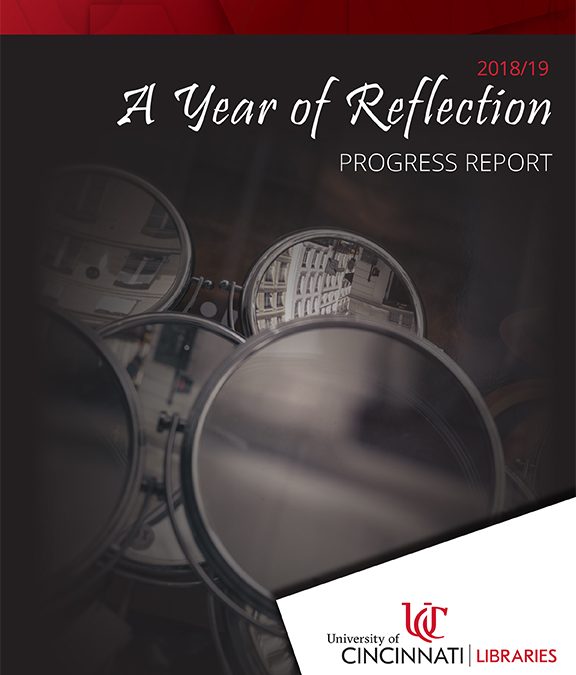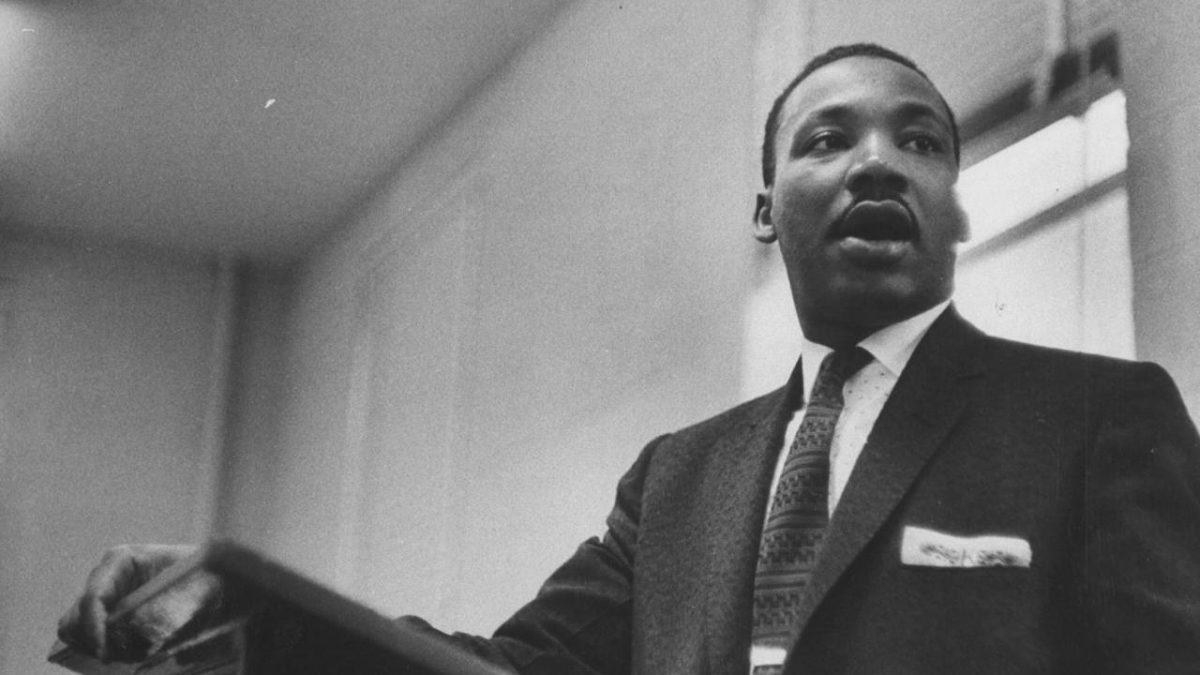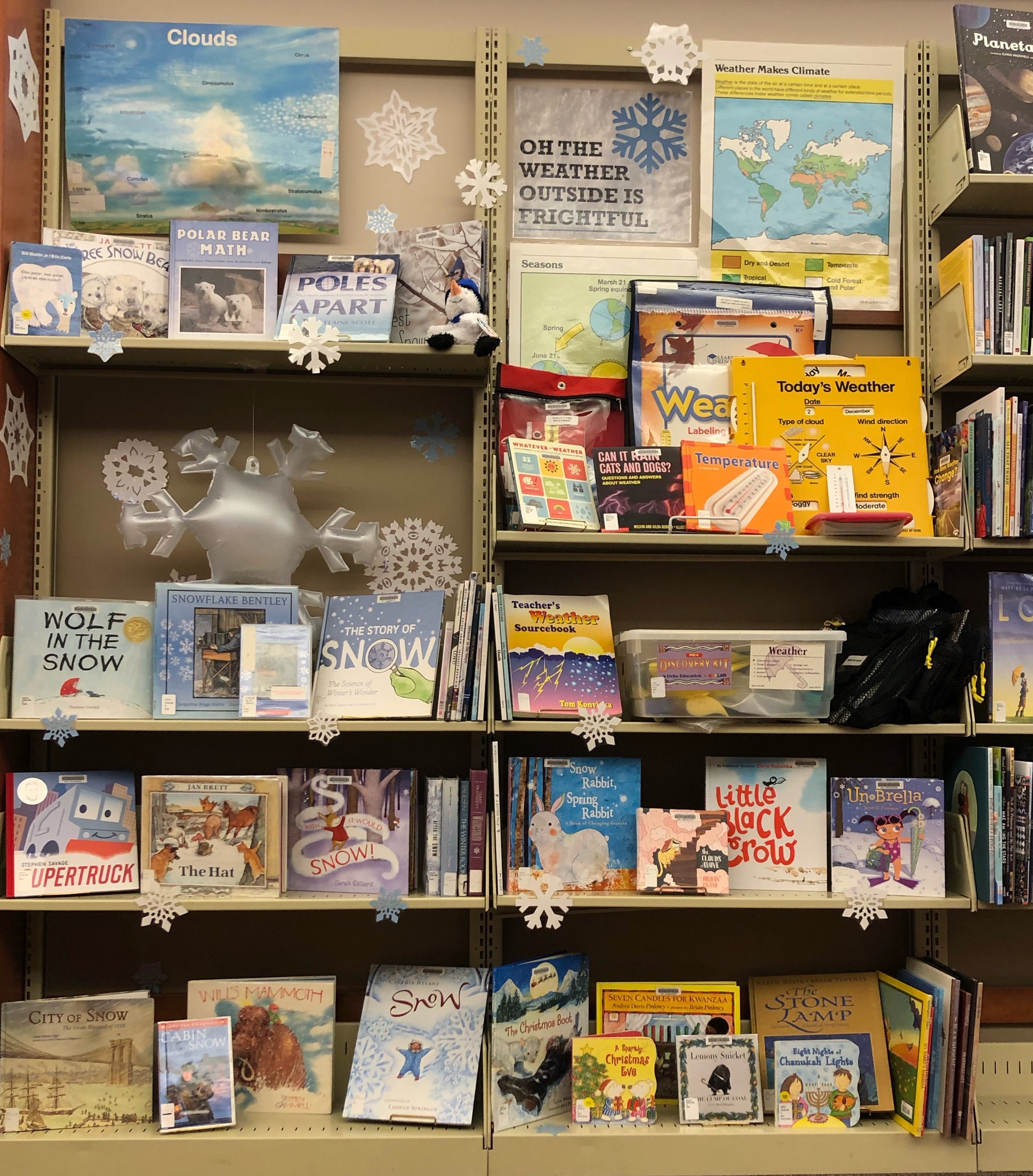
The exhibit, Women of the Movement: Leaders for Civil Rights and Voting Rights, currently on display on the 4th floor lobby of the Walter C. Langsam Library, profiles female leaders of the fight for civil and voting rights. Beginning with Sojourner Truth, former slave and abolitionist, and including contemporaries Diane Nash, a key player in the passage of the Civil Rights Act of 1964, and Cincinnati’s Marian Spencer, a champion for Civil Rights both locally and nationally, the exhibit spans history into current times.
Included in the exhibit are women instrumental to the Suffrage fight – Sojourner Truth who worked closely with Susan B. Anthony; Mary Church Terrell, founder of the National Association of Colored Women in 1896 as part of the Suffrage Movement after black women were excluded from the Women’s Suffrage Movement; and Mary McLeod Bethune who led voter registration drives following passing of the 19th Amendment.
Civil Rights activists on display include Fannie Lou Hamer, who famously said, “I’m sick and tired of being sick and tired;” Daisy Bates, an integrated schools advocate; and Ida B. Wells, a journalist, educator and one of the founders of the National Association for the Advancement of Colored People.
The exhibit’s design is inspired by a recently created ArtWorks mural in Cincinnati’s Avondale neighborhood honoring Louise Shropshire, composer of the hymn, “If My Jesus Wills,” that became the well-known mantra “We Shall Overcome” during the Civil Rights Movement. Louise Shropshire’s papers are located in the Archives and Rare Books Library.
Women of the Movement: Leaders for Civil Rights and Voting Rights was curated by June Taylor-Slaughter, public services supervisor in the Geology-Mathematics-Physics Library, and was designed by Michelle Matevia, UC Libraries communication design co-op student. A handout is available at the exhibit with more information on the women featured in the exhibit.
Bibliography:
- Alexander, Shawn Leigh. An Army of Lions : The Civil Rights Struggle Before the NAACP. Philadelphia: University of Pennsylvania Press, 2012. Print. LANGSAM; CLERMONT E185.61 .A437 2012
- Bracey, Earnest N. Fannie Lou Hamer: The Life of a Civil Rights Icon. Jefferson, NC: McFarland & Co., 2011. Print. LANGSAM E 185.97.H35 B73 2011
- Brooks, Maegan Parker. A Voice That Could Stir an Army: Fannie Lou Hamer and the Rhetoric of the Black Freedom
Movement. Jackson: University Press of Mississippi, 2014. Print. LANGSAM E 185.97.H35 B76 2014 - Harwell, Debbie Z. Wednesdays in Mississippi: Proper Ladies Working for Radical Change, Freedom Summer 1964. Jackson: University Press of Mississippi, 2014. Print. LANGSAM E185.93.M6 H37 2014
- Christenson, Dorothy H, Keep on fighting: the life and civil rights legacy of Marian A. Spencer. Athens, OH: Ohio University Press, 2015. LANGSAM F499.C553 S643 2015
- Frontline feminism 1975-1995 : essays from Sojourner’s first 20 years / edited by Karen Kahn ; foreword by Robin Morgan. San Francisco : Aunt Lute Books, c1995. LANGSAM. HQ1402 .F76 1995



 This past year the University of Cincinnati marked its Bicentennial led by the tenants: To Honor the past. Elevate the present. Bend the future. While
This past year the University of Cincinnati marked its Bicentennial led by the tenants: To Honor the past. Elevate the present. Bend the future. While
 Just like films, television, and music, the best books of the year garner accolades and awards. Each January, at the American Library Association’s Mid-Winter Conference, several of the most prestigious children’s book award winners are announced. Prepare for the 2020 award season by exploring some previous award winners from the CECH Library’s collections.
Just like films, television, and music, the best books of the year garner accolades and awards. Each January, at the American Library Association’s Mid-Winter Conference, several of the most prestigious children’s book award winners are announced. Prepare for the 2020 award season by exploring some previous award winners from the CECH Library’s collections.
 The faculty and staff of the University of Cincinnati Libraries bring you good tidings of the season and wish you a prosperous and joyful 2020! UC Libraries will be closed for Winter Seasonal Days, Dec. 23-Jan. 1, with the exception of the Donald C. Harrison Health Sciences Library, which will be open on a limited schedule. A complete list of library hours is available
The faculty and staff of the University of Cincinnati Libraries bring you good tidings of the season and wish you a prosperous and joyful 2020! UC Libraries will be closed for Winter Seasonal Days, Dec. 23-Jan. 1, with the exception of the Donald C. Harrison Health Sciences Library, which will be open on a limited schedule. A complete list of library hours is available